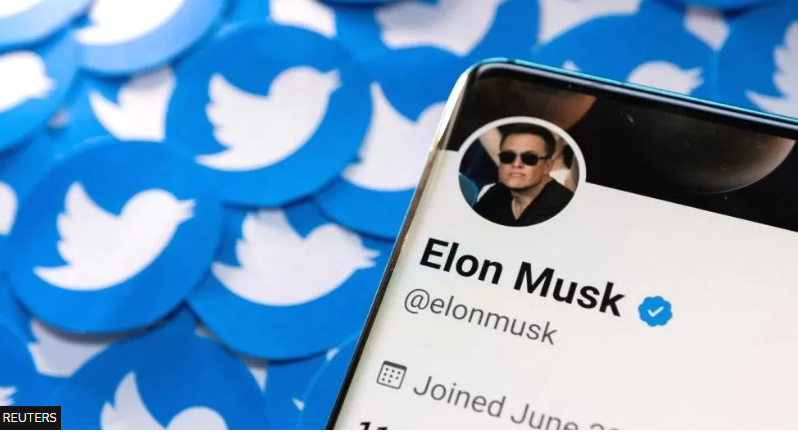Why is Twitter limiting how many tweets you can see?

Twitter started restricting how many tweets its users could read on Saturday.
Musk tweeted that unverified users can read 1,000 tweets a day, and verified users can read 10,000.
Twitter users began sharing screenshots of messages that they had “exceeded” their daily limit.
As the CEO of a social media company, Elon Musk did something unfathomable – he limited user activity.
It has baffled advertising executives why the move has been made.
In fact, Elon Musk is engaged in a very long-term battle with AI companies that goes much deeper than this.
In order to understand how Twitter makes money, we need to first understand how it makes money. Like Meta and Google, most of its revenue is generated by advertising.
Advertisements appear on the platform when users access it. Twitter users see more ads as their time on the site increases. There isn’t much complexity to the equation. The business is that.
Despite this, Elon Musk has historically avoided advertising. Unlike most companies, Tesla doesn’t advertise.
A tweet he posted in 2019 stated, “I hate advertising”.
In spite of that, he bought a company that is totally dependent on it.
Elon Musk is desperate to generate new revenue streams.
It’s not just a business decision. Basically, he believes social media companies are too dependent on advertisers for moderation.
Twitter has been pulled by advertisers in the past.
Advertising next to racist or extremist content is not something advertisers want. Therefore, Twitter’s main revenue stream also affects how much “free speech” is allowed.
Musk on layoffs, misinformation, and sleeping at work
Twitter temporarily restricts users’ access to tweets
An account with a high profile on Twitter has been restored with a blue tick
Following his takeover of Twitter, Mr Musk told me that “most” of the advertisers had returned.
In order to become a profitable company, Musk has another plan.
By monetizing Twitter’s vast data, he hopes to make money.
For AI companies, platforms like Twitter and Reddit offer a treasure trove of hundreds of billions of real human conversations.
These interactions can teach large language models (LLMs) how to respond to questions more human-like.
But platforms like Twitter and Reddit want to be paid for the use of their data in this way.
In April, Reddit’s chief executive Steve Huffman told the New York Times that he was unhappy with what AI companies were doing.
“The Reddit corpus of data is really valuable,” he said. “But we don’t need to give all of that value to some of the largest companies in the world for free.”
At around the same time, Elon Musk said that Microsoft was “ripping off the Twitter database, demonetizing it (removing ads) and then selling our data to others”.
On Saturday it became clear how frustrated Mr Musk was getting.
“We were getting data pillaged” he said.
“Almost every company doing AI, from start-ups to some of the biggest corporations on Earth, was scraping vast amounts of data,” he said.
And so, by restricting usage, Elon Musk is hoping to prevent its data from being pulled into LLMs. He wants to negotiate with AI companies and get paid for the content that they take.
Meta’s Twitter clone?
But there could be other factors at play too, and it goes back to another one of his attempts to decrease Twitter’s reliance on advertising revenue.
Mr Musk is desperate for people to pay for Twitter.
For months, he’s been trying to push people towards Twitter Blue. There’s been some carrot, giving Twitter Blue members a blue tick and verification, and some stick – removing verification from users that don’t pay.
But Twitter Blue has not been what Elon Musk had hoped. People aren’t paying up in their droves.
Perhaps he’s looking at another way to get users to open their wallets. In future, if want access to unlimited tweets, perhaps you’ll have to pay a monthly fee?
Whatever Mr Musk is thinking, one thing is clear though. Restricting tweets is not good for advertisers.
The limits are “remarkably bad” for users and advertisers already shaken by the “chaos” at Twitter, Mike Proulx, research director at Forrester, told Reuters.
This is perhaps the most perplexing part of Elon Musk’s restrictions. He has recently hired Linda Yaccarino to be Twitter’s chief executive. She’s a former advertising executive.
She reportedly has grandiose ideas for how Twitter can make more money – including full-screen video ads and trying to convince more celebrities to use the app.
Her job is made far harder by having restricted tweets. Fewer eyeballs on posts means advertisers will be less interested in spending money.
And then there’s Meta.
Mark Zuckerberg is reportedly launching a Twitter clone, called Threads, at some point this summer. The chances that there will be restrictions on its feed, on how many posts you can read, are zero. That is not the Meta way.
Elon Musk is an extraordinarily successful businessman, and he has a genuine gripe when it comes to AI companies ripping off its data. But this weekend’s events have been another head scratcher.
